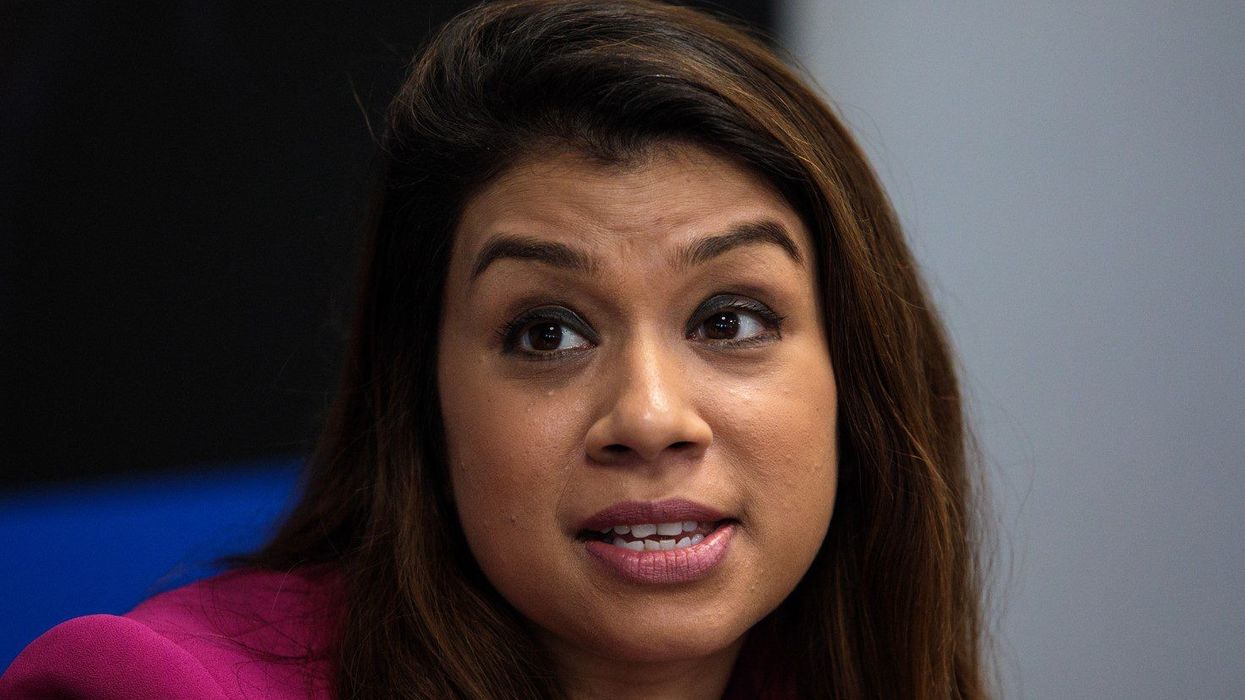LABOUR MP Tulip Siddiq has denied corruption allegations after reports emerged that Bangladesh’s Anti-Corruption Commission (ACC) had issued an arrest warrant against her. Siddiq is the niece of Sheikh Hasina, Bangladesh’s former prime minister who was deposed in August.
Siddiq stepped down as the economic secretary to the treasury in January this year. At the time, she said her family connections were becoming a “distraction” to prime minister Keir Starmer’s government.
Over the weekend, her spokesperson said in a statement that the allegations were “completely false” and had been addressed by her legal team.
“The ACC has made various allegations against Ms Siddiq through the media in the last few months. The allegations are completely false and have been dealt with in writing by Ms Siddiq's lawyers,” the spokesperson said.
“The ACC has not responded to Ms Siddiq or put any allegations to her directly or through her lawyers. Ms Siddiq knows nothing about a hearing in Dhaka relating to her and has no knowledge of any arrest warrant that is said to have been issued,” the statement said.
The spokesperson also said there was “no basis at all” for charges and “absolutely no truth” in the claim that Siddiq received a plot of land in Dhaka through illegal means.
“She has never had a plot of land in Bangladesh and has never influenced any allocation of plots of land to her family members or anyone else. No evidence has been provided by the ACC to support this or any other allegation made against Ms Siddiq. It is clear to us that the charges are politically motivated,” the spokesperson said.
Siddiq, 42, represents Hampstead and Highgate in north London. She referred to her family ties in her resignation letter, stating that they were a matter of public record.
She also pointed out that the prime minister’s independent adviser on ministers’ interests had not found her in breach of the ministerial code, and that she had not “acted improperly”.
Keir Starmer praised Siddiq’s work during her time in office, especially in leading the rollout of Banking Hubs and shaping the government’s financial inclusion agenda.
The ACC has named Siddiq in the case alongside over 50 others. The wider investigation focuses on allegations against Sheikh Hasina and her family, including claims they embezzled up to £3.9 billion from infrastructure projects. These allegations were brought by Bobby Hajjaj, a political opponent of Hasina.
Hajjaj also accused Siddiq of helping broker a 2013 deal with Russia for a nuclear power plant at an inflated cost. Siddiq’s lawyers, Stephenson Harwood, have denied all charges and said the ACC has not contacted her directly.
“There is no basis at all for any charges to be made against her,” the lawyers said in a statement seen by the BBC. “There is absolutely no truth in any allegation that she received a plot of land in Dhaka through illegal means. She has never had a plot of land in Bangladesh and has never influenced any allocation of plots of land to her family members or anyone else. No evidence has been provided by the ACC... and it is clear to us that the charges are politically motivated.”
Siddiq had referred herself to the PM’s ethics adviser, Sir Laurie Magnus, after the allegations surfaced. Sir Laurie found no evidence of wrongdoing, though he said it was “regrettable” Siddiq had not been more alert to the reputational risks from her family ties.
ACC chairman Mohammad Abdul Momen told the BBC that the investigation was “based on documentary evidence of corruption” and said Siddiq should appear in court to defend herself. “Tulip Siddiq must not shy away from the court proceedings in Bangladesh,” he said. “I would welcome Siddiq come and defend her case and with the best possible legal support accompanying her.”
Momen also denied the ACC was interfering in UK politics. “ACC briefing to the media is a regular phenomenon, it is delivered professionally and with all accuracy,” he said.
There is no formal extradition treaty between the UK and Bangladesh. Bangladesh is listed by the UK as a 2B extradition country, which means clear evidence is required before ministers or judges can take any action.
A Conservative Party spokesperson said: “If it is the case that Keir Starmer's choice for anti-corruption minister is the subject of an international arrest warrant for corruption, she should immediately stand down as Labour MP.”
Starmer had left open the possibility of Siddiq returning to government in his letter accepting her resignation.
(With inputs from agencies)





